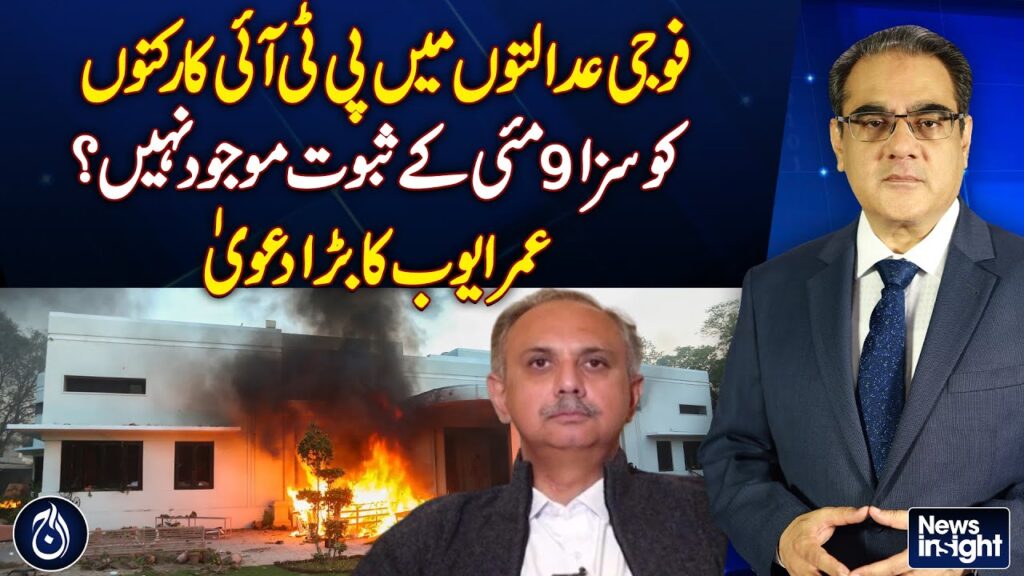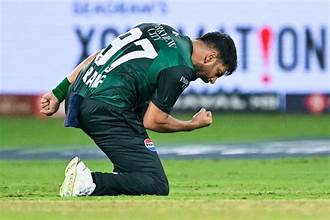In a landmark development that has sent shockwaves through Pakistan’s political landscape, prominent Pakistan Tehreek-e-Insaf (PTI) leaders Omar Ayub and Shibli Faraz have been sentenced to 10 years in prison in connection with the May 9 violence cases. The court’s decision comes after months of investigations into the widespread unrest that erupted following the arrest of PTI Chairman Imran Khan, which led to significant damage to public and military properties across the country.
The sentencing marks a dramatic turn in the state’s crackdown on individuals allegedly involved in orchestrating or supporting the violent protests. Alongside Ayub and Faraz, several other PTI members have also faced similar charges and convictions, further intensifying the political crisis gripping the nation.
The Background: May 9 Violence
On May 9, 2023, mass protests broke out across Pakistan following the arrest of former Prime Minister Imran Khan by paramilitary forces in Islamabad. What began as peaceful demonstrations by PTI supporters soon spiraled into chaos, with rioters targeting military installations, public buildings, and law enforcement vehicles. The GHQ (General Headquarters) in Rawalpindi and the Corps Commander’s residence in Lahore were among the high-profile sites attacked.
The federal and provincial governments responded by launching a series of investigations and detentions. Thousands of PTI workers and leaders were arrested, and many were charged under anti-terrorism laws. The state maintained that the May 9 violence was premeditated and orchestrated by PTI’s top leadership to pressure the judiciary and military into releasing Imran Khan.
Legal Proceedings and Sentencing

After months of legal procedures, the special court overseeing the May 9 cases announced its verdict on key PTI leaders. Omar Ayub, who served as Finance Minister and held other key positions during PTI’s tenure, and Shibli Faraz, who had served as Federal Minister for Information, were both found guilty of inciting violence, unlawful assembly, and damaging state property.
The prosecution presented video evidence, intercepted communications, and witness testimonies to support its claim that both leaders had actively incited party workers to resort to violence. Defense lawyers argued the charges were politically motivated and based on weak or manipulated evidence, but the court found the state’s case convincing enough to hand down a 10-year sentence to each leader.
Political Reactions
The verdict has drawn sharp reactions from all sides. PTI has categorically rejected the sentencing, calling it a “mockery of justice” and a tool for political victimization. The party claims the ruling is part of a broader strategy to dismantle its organizational structure ahead of the next general elections. In a statement released from PTI’s media cell, party officials vowed to challenge the verdict in higher courts and termed it “unconstitutional and undemocratic.”
On the other hand, government officials and opposition parties have welcomed the verdict as a “necessary step to uphold the rule of law.” They argue that no one should be above the law, especially those responsible for inciting unrest that threatens national stability.
Implications for PTI

This court ruling is likely to have far-reaching implications for PTI as a political force. With many of its senior leaders now either behind bars or in hiding, the party faces a leadership vacuum. Imran Khan himself remains entangled in multiple legal cases, weakening his ability to lead an effective electoral campaign.
The incarceration of leaders like Ayub and Faraz could also affect the party’s public perception. While die-hard supporters may see them as martyrs, others may grow disillusioned by the party’s inability to steer clear of controversy and legal troubles. Moreover, the verdict could dissuade new political entrants and technocrats from aligning with PTI in the near future.
Concerns About Due Process
Legal experts and human rights organizations have raised concerns about the fairness of the judicial process. Some argue that the use of anti-terrorism laws to try political leaders sets a dangerous precedent. Others believe that the judiciary should maintain independence and transparency in politically sensitive cases to avoid public perception of bias.
The courts have maintained that the legal process was followed thoroughly and that the verdicts are based on credible evidence. Still, the debate about the judiciary’s role in politically charged cases is unlikely to subside soon.
What’s Next?
The legal team for Omar Ayub and Shibli Faraz has announced plans to appeal the decision in higher courts. PTI is also expected to mobilize its support base to protest the sentencing, though any such activity would likely be tightly monitored by law enforcement agencies.
As Pakistan inches closer to the next general elections, the political landscape remains deeply polarized. The sentencing of key PTI leaders adds another layer of complexity to an already turbulent political environment. Whether the verdict will serve as a deterrent or fuel further unrest remains to be seen.
Conclusion
The sentencing of Omar Ayub and Shibli Faraz marks a pivotal moment in Pakistan’s political and judicial history. It underscores the serious consequences of political violence and sends a strong message about the state’s resolve to maintain law and order. However, it also opens up questions about political freedoms, due process, and the balance of power in a democracy. As the appeals process begins, all eyes will be on how Pakistan’s institutions respond to this highly charged legal and political episode.



